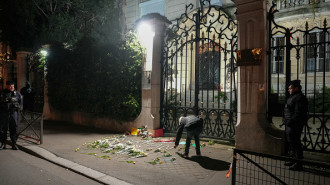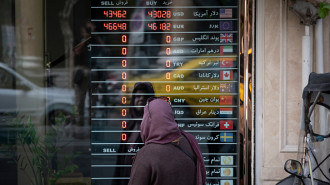Iranians in Iraq divided over possible end to notorious morality police
Iranians in Iraq expressed scepticism at reports on Sunday that Tehran has abolished its feared morality police, a force indelibly associated with months of protests in the Islamic Republic.
Iran's morality police in mid-September arrested young Iranian Kurdish woman Mahsa Amini for allegedly breaching the country's strict dress code for women, and she subsequently died in their custody, triggering ongoing protests. Amini's Kurdish first name can be spelt "Zhina" or "Jina".
Late on Saturday, Iran's attorney general said that the force had "been abolished".
But the move received short shrift in Iraqi Kurdistan, where Iranian opposition groups have lately been the target of cross-border missile and drone strikes by the regime.
"The protesters' slogan is not that the morality police should be disbanded," said Nachmil Abdi, who works in a shop selling women's shoes.
"Yes, one of the claims is an end to the compulsory headscarf," she added. "But the true demand is the elimination of the regime."
Soma Hakimzada, a 32-year-old journalist born in Iraqi Kurdistan to parents who fled Iran, also viewed the move dimly.
"I don't think women appreciate this Iranian announcement," she said, adding that she hoped it would not dampen the fervour of protests inside the Islamic Republic.
The old tactics used by Iran's regime to quash the #IranProtests aren't working. The regime has even resorted to slurs to target protestors, only demonstrating its desperation as it denies the legitimacy of the uprising. @KZiabari shares his thoughts ⬇ https://t.co/jAaU0C2a2A
— The New Arab (@The_NewArab) December 5, 2022
Elsewhere in Iraq, views were mixed.
"If we want to have a morality police, it must be done with soft words," pleaded Wahid Sarabi, speaking in the Iraqi holy city of Najaf, but who is from the western Iranian city of Hamedan.
Younis Radoui, a 36-year-old Iranian originally from Mashhad, took the view that laws in Iran "imposes respect for the hijab – and therefore all citizens must respect the law and the hijab".



